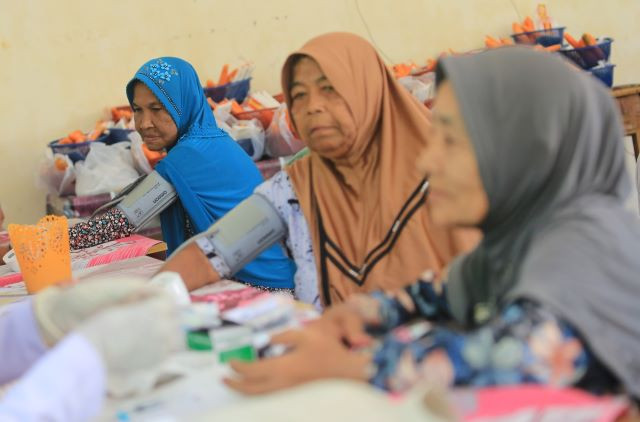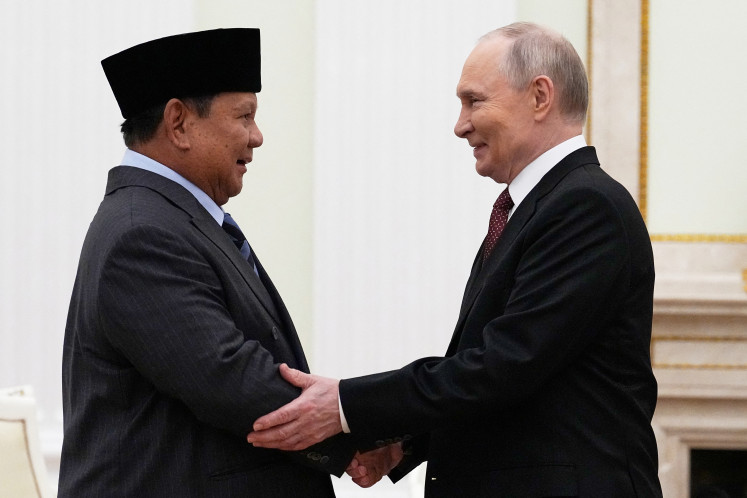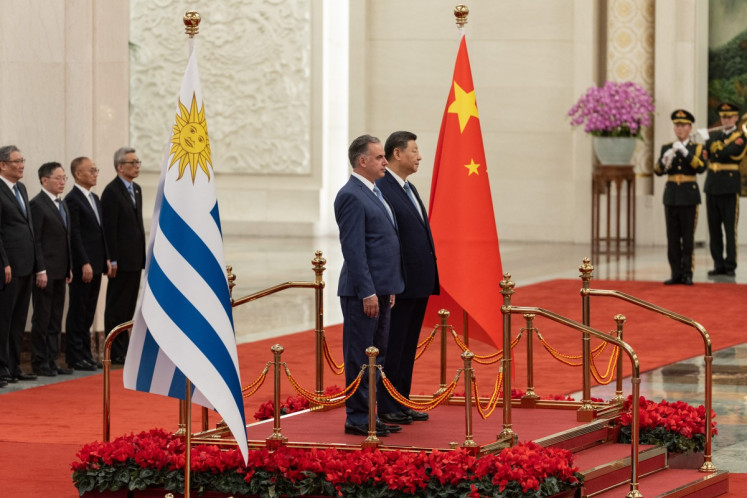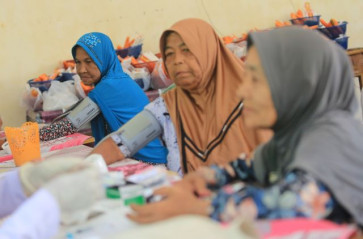Popular Reads
Top Results
Can't find what you're looking for?
View all search resultsPopular Reads
Top Results
Can't find what you're looking for?
View all search resultsNo magic number for mandatory health spending amid multiple crises
The Improving Health System Efficiency Report by the WHO has highlighted that public resources are too often fragmented, poorly distributed and inefficiently used.
Change text size
Gift Premium Articles
to Anyone
I
n response to the substantial impact of the COVID-19 pandemic, all countries ramped up spending in the health sector. The current deteriorating macroeconomic and fiscal reality, alongside the consequences of the Ukraine war and competing national priorities, will significantly constrain public spending on health in 2023 and beyond. At the same time, the looming economic recession is squeezing donor resources.
High debt burdens and soaring pressure from inflation are likely to widen gaps between needs and spending in the health sector. Postponed health care, aging populations, high levels of health risk factors and the burden of long COVID require more resources for recurrent health expenditures. However, health systems are still staggering from the fallout of the pandemic. A World Bank report estimates that 41 governments will spend less on health between now and 2027, and in 69 countries, spending will remain almost on par with pre-pandemic levels.
In 2015, Indonesia and other United Nations member states agreed to pursue the progressive realization of universal health coverage (UHC) as part of their commitment to the Sustainable Development Goals (SDGs). The WHO defines UHC as providing all people and communities with the promotive, preventive, curative, rehabilitative and palliative health services they need, of sufficient quality, while also ensuring that use of these services does not result in financial hardship. Having made the political commitment, policymakers are now asking the reasonable question of how much UHC will cost.
In answering the question, policymakers often start with a forthright comparison between current per capita funding for health in their country and global normative targets. There are some pitfalls of using global normative targets to produce national revenue estimates. Focusing on global normative targets can mislead that UHC is a target to achieve. UHC is an objective that must be pursued continuously through reform of the health system. All countries should endeavor to implement reforms that promote universal access, higher quality and financial protection, regardless of the resources dedicated to health.
We need to recall that global normative targets were designed primarily for advocacy purposes, and were not intended to be used for national planning. In situations where health budgets are limited, comparing current spending with global targets can lead to unrealistic estimates. The production of health is influenced by important factors that are specific to individual country, such as the labor cost of healthcare workers and the price of medical products. In 2016, the World Health Organization found that the performance of different countries in improving coverage and financial protection varied widely regardless of whether their health budget was low or high. For any given level of health spending, countries vary in health performance and achievements. This means that all countries have room for progress toward UHC. The question is less about achieving a spending target and more about what can be done with the resources available. For example, in 2017 the United States, which has some of the world’s leading hospitals, research universities and advanced medical centers, spent 18 percent of its gross domestic product on health, but millions of its citizens were without access to essential health services or financial protection.
More than 20 years after the Abuja Declaration of 2001, when African countries committed to allocate at least 15 percent of their national budgets to health, fewer than five nations have consistently been able to follow through on the promise. The basis for the 15 percent is not clear. Achieving the targets set in the Abuja Declaration has proved difficult for many African nations. Only 29 percent of upper-middle-income and high-income countries reached this level. The target is rarely considered useful or relevant to country policymakers.
The political voices calling for a certain figure for mandatory health spending have been growing ever loader in the legislature. So why is it so hard to talk about healthcare spending? Because there is no magic number for healthcare spending, no silver bullet. High-quality and accessible health care for each member of our community is an important and attainable goal. The challenge of policymakers and healthcare leaders is to make hard choices between many goods and worthy options, and to seek out the highest-value intervention. We must recognize that health status is driven by a complicated mélange of factors, all of which must be addressed.



















